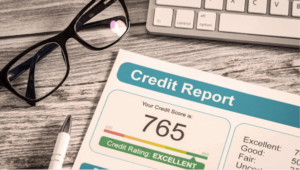In the realm of personal finance, various types of loans help individuals meet their financial goals and needs. One of these loan options is the unsecured installment loan. This article aims to provide a comprehensive understanding of what unsecured installment loans are, how they work, and their benefits and considerations.
What Are Unsecured Installment Loans?
Unsecured installment loans are a type of personal loan that does not require collateral. This means borrowers do not need to pledge assets, such as a car or a house, to secure the loan. Instead, these loans are granted based on the borrower’s creditworthiness and their ability to repay the debt on time.
How Unsecured Installment Loans Work
Unsecured installment loans operate on a straightforward premise: borrowers receive a lump sum of money from a lender and agree to repay it over time in fixed, regular installments. The terms of these loans typically include the loan amount, interest rate, repayment period, and the number and frequency of installments. Here is how the process works:
-
- Application: Borrowers apply for an unsecured installment loan, either through a traditional financial institution like a bank or credit union, or through online lenders. The application requires details about the borrower’s income, employment, credit history, and the purpose of the loan.
- Credit Check: Lenders conduct a credit check to assess the borrower’s creditworthiness. This check helps lenders determine the interest rate, loan amount, and terms they can offer. Good credit often leads to more favorable loan terms.
- Loan Approval: Upon approval, borrowers receive a loan offer outlining the loan terms. This includes the total loan amount, the annual percentage rate (APR), the monthly payment amount, and the loan’s duration.
- Acceptance: Borrowers review the terms and, if they agree, accept the loan offer. This is done by signing a loan agreement, either in person or electronically.
- Funds Disbursement: Once the loan agreement is signed, the lender disburses the funds into the borrower’s bank account. Borrowers can then use the money as needed.
- Repayment: Borrowers begin repaying the loan according to the agreed-upon schedule. This usually involves making monthly payments that include both principal and interest. The loan is fully paid off once all installments are made.
What Are The Benefits of Unsecured Installment Loans?
Key benefits of unsecured installment loans are:
No Collateral Required
Unsecured installment loans do not require collateral, reducing the risk of losing valuable assets in case of default.
Flexibility
These loans can be used for various purposes, such as debt consolidation, home improvement, medical expenses or unexpected emergencies.
Predictable Payments
Borrowers benefit from fixed, predictable monthly payments, which makes budgeting and financial planning easier.
Quick Approval
Online lenders often provide quick approval and funding, allowing borrowers to access funds promptly.
Improved Credit
Responsible repayment of an unsecured installment loan can positively impact the borrower’s credit score, potentially improving their credit profile with a good credit rating.

What Are Some Considerations And Challenges Of Unsecured Installment Loans?
While unsecured installment loans offer several advantages, borrowers should also be aware of potential considerations and potential challenges. Examples are included in the table below:
| Higher Interest Rates: | Unsecured loans typically come with higher interest rates compared to secured loans. This is due to the increased risk for lenders when no collateral is involved. |
| Creditworthiness Matters: | Borrowers with strong credit histories are more likely to secure favorable loan terms. Those with less-than-stellar credit may face higher interest rates and less attractive terms. |
| Potential for Debt Accumulation: | Easy access to unsecured installment loans can tempt individuals to accumulate more debt than they can comfortably manage. |
| Limited Loan Amounts: | Unsecured installment loans often come with smaller loan amounts compared to secured loans. |
| Impact on Credit: | Defaulting on unsecured installment loans can harm one’s credit score and make it more challenging to secure future credit. |
| Prepayment Penalties: | Some loans may have prepayment penalties for borrowers who wish to pay off the loan early. |
The Bottom Line
Unsecured installment loans offer a flexible and accessible financial solution for borrowers who do not want to pledge collateral. They are a viable option for various financial needs and goals.
However, borrowers should carefully consider the terms, interest rates, and their ability to repay the loan before entering into an agreement. As with any financial decision, responsible borrowing and diligent financial management are key to maximizing the benefits of unsecured installment loans while minimizing potential risks.



